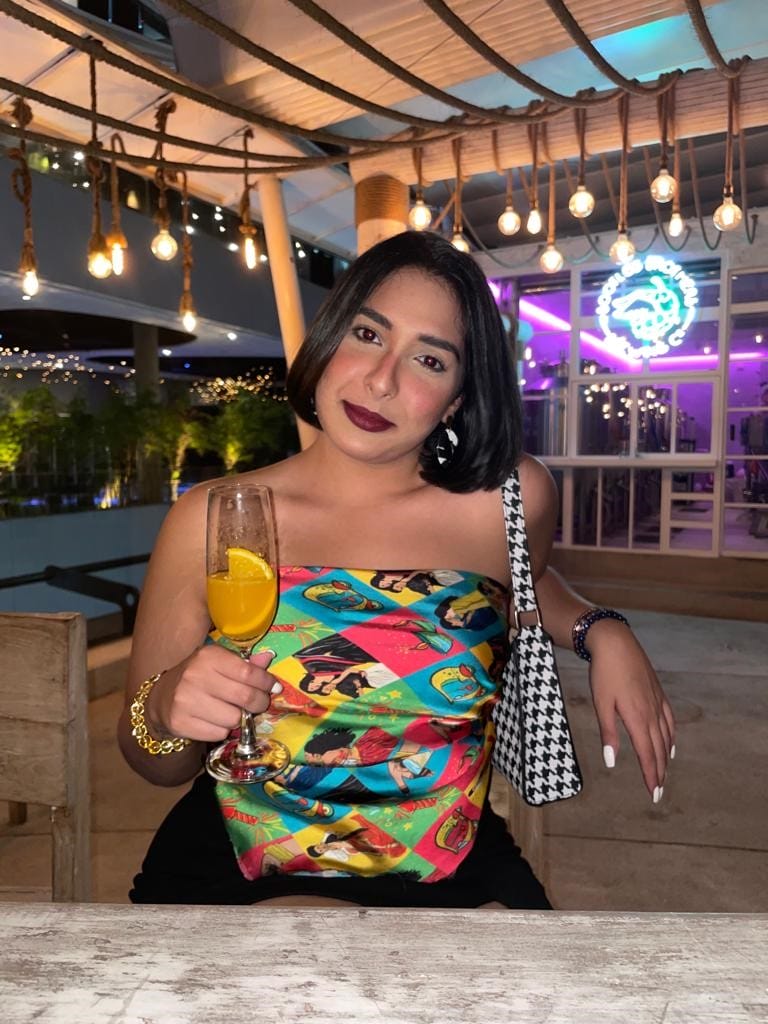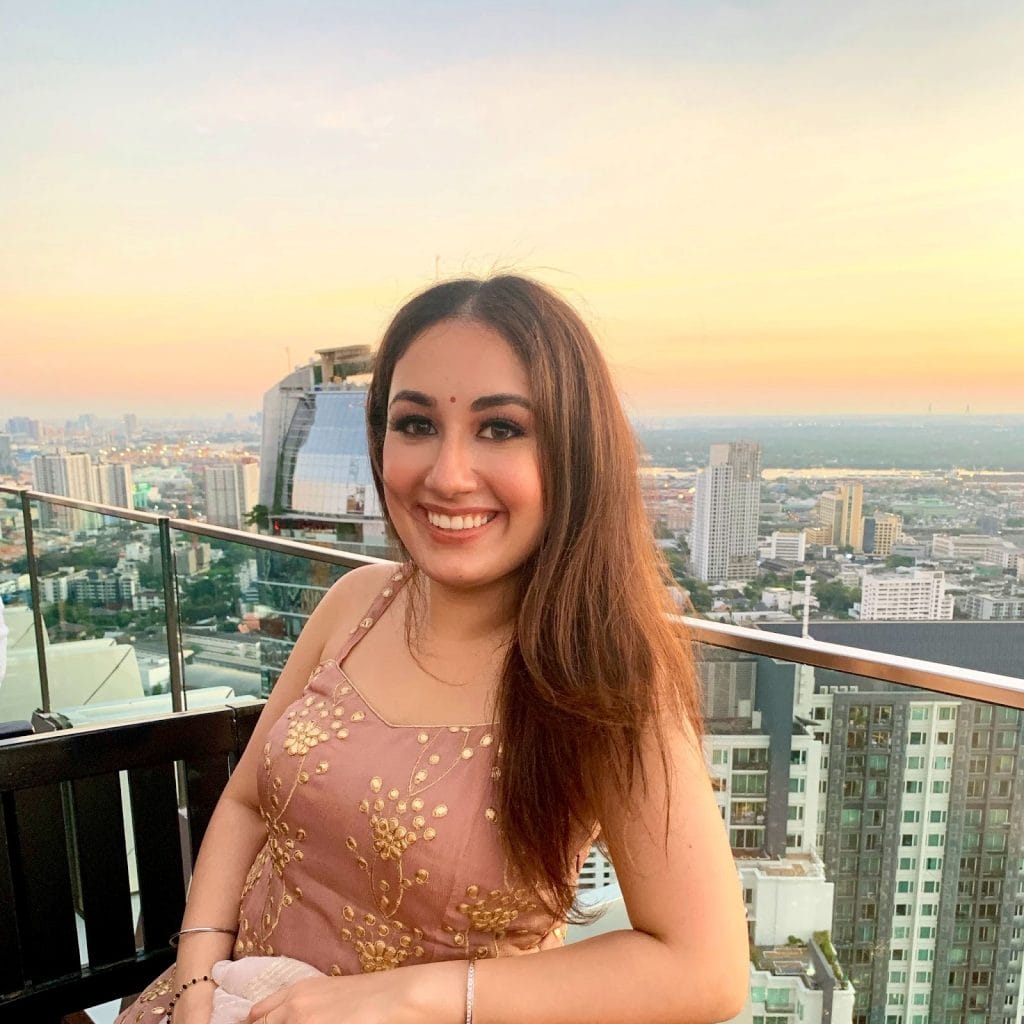Tips on how to stay unapologetically yourself.
By Rubani Sethi
This is a topic that hits home for me and many people in our community. I remember on one occasion being told that I wasn’t allowed to attend someone’s wedding party because at the time, I had just returned from studying abroad and was told that I had put on so much weight it would simply be embarrassing for the society to see ‘how much weight I had put on.’ To add another blow, I had returned from a country that was in its peak summer time, and therefore had darker skin than usual. This of course led to comments like, “no boy is going to want to marry you if you’re dark.”
Whether it was being compared to my fairer cousins while growing up, being restricted from doing activities in the sun, or being categorised as ‘bhari’ or ‘halkha,’ I learnt from a very young age that there was almost nothing our society valued more than how fair or thin young women should be. I learned through observation and how people treated me that I should feel uncomfortable in my body because I wasn’t of an acceptable weight or skin tone and the only way I would receive validation was if I aspired to be fairer and smaller in size.
The reason I wanted to share my personal experience in this piece is that I wanted to call to attention the fact that a society that equates beauty with things like ‘flawless skin,’ ‘fair skin,’ and being a ‘size two or four’ perpetuates toxic and unrealistic standards for anyone who might not fall into those categories. We are made to feel like outcasts, like we need to act on how we look in order to fi t in, or we are shamed and told that we are not worthy of respect or love. It is time we call out toxic behaviours, such as aunties coming up to our parents to suggest ‘haldi’ for our skin, or to put us on diets that they’ve put their daughter-in-laws on.
In the age of social media, it is already difficult to love ourselves when we constantly have to compare. If we are also part of a society that only values us because of how we look, it definitely adds onto it. It took me a long time to learn how to love myself. It wasn’t until a few years ago that I learned how to love myself for who I was, rather than spend my time defining my worth based on my skin tone and my weight.
I am sure this is a shared experience, so I don’t have to explain further just how toxic passing comments and judgment can be. We decide what we eat and what we do on our desire to lose weight around our arms, thighs, bellies, faces. We buy skin products that will help us whiten our skin. We take selfies and see ourselves through a lens that our society has created for us.
To bring attention to how damaging this culture of perfection can be, I enlisted some help from community members who have struggled with living up to our society’s standards of beauty. They share their experiences on how these toxic standards shaped their lives, what message they would like to share with others who are struggling, and how they learned to love themselves now despite it all.
DHIKSHA SAJNANI, 24
I remember feeling insecure very early on, maybe around 6 years old, because my body type from a young age wasn’t ideal. I was always told I needed to lose weight, or I was a cute chubby child. I felt uncomfortable in my body for a very long time, and it was partially the reason why I wasn’t an active child. I was too busy caring too much about people’s opinions.
However, over time I began to realise that I shouldn’t stop myself from doing things or wearing certain clothes because of the opinions of others. I think it may have been harder because in Asian cultures, especially in Thailand, the majority of women are petite and have great metabolisms, but that wasn’t my reality. I used to beat myself up for it which resulted in low self-esteem and no confidence.
Aunties would be sharing workout or new diets with me, essentially insinuating that I was overweight. I also received comments like “you would be much prettier if you lost weight” which hurt my feelings at the time, but it doesn’t bother me now. I don’t care now. Over time, I realised that everyone has insecurities, everyone has something they aren’t happy about, it can be skin, acne or the shape of their nose, mine just happens to be the size of my hips and the extra belly fat I have [Laughs].
I am grateful that I realised I am so much more than my body and how I look. You have to learn to separate yourself from what other people think of you and be strong enough to do what you want to do. Society’s beauty standards are always changing and you will never fi t in every box. When I was in school, everyone wanted to look like a Victoria’s Secret model and then when I went to college, everyone wanted a big butt inspired by Kim Kardashian. There is always going to be different ideal beauty standards.
For younger women out there, what you see on social media isn’t always true, and it is not always the best image for you. Learn to love yourself regardless of how you look because it’s about the person you are within. No one’s opinion of you should matter as much as your own. It’s important for young people to understand that everyone has something they are insecure about and that doesn’t defi ne them. Remember you can change your perspective or reach a body goal in a healthy and positive way. It breaks my heart when I see young people start losing weight for the wrong reasons or having unhealthy food habits or a bad relationship with food.
Honestly I have lost hope that our society will change especially for older adults who don’t understand the impact of the comments they make. So make sure not to give people so much power over you. You are your own person and you have your own perspective. Once you stop caring about what people think, no one can stop you. Accept yourself for who you are and find people who understand you, that’s all you need. The rest remains is just noise.
I hope I am part of the generation who won’t make people feel bad about themselves, a new generation where adults understand that you can hurt a child by saying some of these things, and that some words can stick in your head for a lifetime. As a society we need to teach kids to love themselves, and have them understand and realise that their value is unrelated to their looks.
Do I consider myself a healthy person? Honestly it is a struggle. I try my best to be healthy, I hit the gym three times a week because I want to age well and don’t like hospitals. However, when I reached my body goals back in college in 2019, it wasn’t by healthy means. After COVID, it’s been a struggle to maintain a healthy mindset while working towards my body goals, but the difference now is that I don’t care what people think. I only care about how I look in my fit and that’s what motivates me.
People who relate to me, all I’m going to say is: focus on yourself and be happy, the rest is noise. Life is about growth, so accept where you are, and keep going.
SUPRIYA KHANIJOU (PIA), 26
Everybody’s definition of beauty is different. Growing up, most of us have idolised someone who ‘fits’ in categories related to ‘normal beauty standards,’ namely actresses, models, or people we know personally. Not generalising, but most of us would look up to them and wish we’d be as beautiful someday. Little did we realise, these desires had subconsciously left a significant impact on our minds.
I’ve been chubby my whole life, and hearing statements like “Once she grows, she’ll automatically get in shape”, “hopefully she’ll get fairer once she’s done with school” or “have you tried using tamarind scrub? It helps lighten your skin” had become the norm for me. These statements would also often come from those who are close to me and I never realised how toxic and based in negative stereotypes these sayings were until I reached a certain age.
Why does one have to look a certain way to be considered beautiful, or even acceptable, for that matter? Does your appearance have any association with who you are as a person? Your skills? Your values? People say ‘be you!’, yet they judge you for being yourself. We’re all beautiful in our own way. I want everyone to love themselves the way they are, be confident and use the right tools to enhance what they already have.
With time, I found my passion, which revolves around the fashion and beauty industry. I enjoy dressing up, especially for cultural events as there are a variety of elements to experiment with. Despite being part of a ‘modernised’ society, I still get comments for wearing red lipstick, or fancy clothing or jewellery. Apparently, dressing up is only reserved for married women. Does this mean I’m not supposed to aunt my idea of beauty with confidence because I’m still unmarried? I’m grateful that my family has always been supportive in all that I do and encourages me to be myself.
Instead of being inspired by unrealistic idols, I now choose to follow influencers who are more relatable and try to keep all their messages are ‘real.’ This doesn’t mean we should stop working on being better versions of ourselves. If we plan on improving something, we should do it for the right reasons. We are not bound to put ourselves through the pressure of unrealistic beauty standards just to be accepted and considered ‘normal.’ I mean, why fi t in when we’re born to stand out?
It’s very difficult to shield yourself away from people’s comments, but it’s not impossible. You are not responsible for proving anything to anyone. If you stick to your values and love yourself, nothing can affect you. ‘Logo ka kaam hai kehna‘. Let’s not give the power to other people, you are the only one who can define your own worth!








